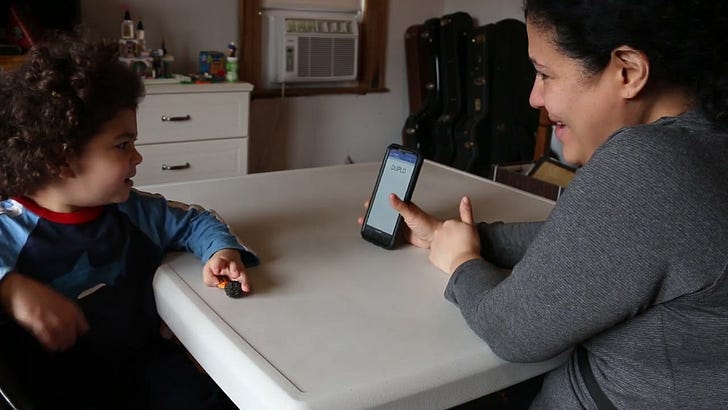Communication and aesthetics
Encourage self-reliance. (Don’t be overprotective.)
Don’t take responsibility for their emotions. This seems like the root cause of overprotective parenting: the parents feel responsible for their child’s potential mistakes and sadness, and thus feel the urge to step in.
Don’t take responsibility for their actions. It also seems to me that over-protective parents that they can control their child’s actions. But this is only thinly true, and it no longer applies once your child is out of your sight.
“But what if my child is going to do something harmful!?” — Instead of you coercing them, they should learn to trust what you say. If you say “the stove is hot”, and they reach out to the stove, I might just let them touch it so they can learn the more important lesson of “listen to dad because he might know about dangers I’m not aware of”.
“But what if my child is going to run in front of a car!?” — Urgent mistakes are different, and I would certainly yank my child out of the street if there was an urgent danger that they didn’t see. However, for anything that is not so urgent (even if it feels just as dangerous!), such as their health decisions, etc., I wouldn’t coerce them.
In general: Don’t do anything for them that they can’t do for themselves. For the purpose of developing their self-reliance, do as little as possible as they mature and allow them to make their own decisions.
No reward-and-punishment “education”, no extrinsic motivation structures, no coercion.
Intuition is sacred. Don’t incentivize them to distrust it.
Resource: https://takingchildrenseriously.com/
Resource: Adlerian Psychology: The Courage to be Happy.
Play with them.
Vibe: I really liked the stories in Playful Parenting by Lawrence Cohen.
See Sivers’s notes
As far as I can tell, most American parents don’t actually do this.
I don’t want to cause my children to lose their natural ability to play
Emphasize intrinsic motivations. Focus on how things feel, rather than how others may judge them as instrumental to their own value systems. Do this myself, and they will follow. Emphasize feeling, and not playing others’ games, like money, prestige, etc.
Lots of skin-to-skin contact
*Figure out how to have them intuit the way of being that naturally results in Alexander Technique and other forms of meditation.
I imagine most of this is innate, so the task for me here is mostly just not causing them to suppress their own natural abilities.
If my wife and I become ~enlightened, do our kids grow up nearly effortlessly ~enlightened?
Time and activities
For making the best use of the time of young children, there seems to be few activities that are legitimately productive.
Most of what I learned when I was 3-7 wasn’t helpful. But I get it— there doesn’t seem to be much else kids can do except memorize. So why not just teach them useful things to memorize? For example, languages.
Developing body-awareness during this time also seems good.
Exercise with them, make it a natural part of their lives
stretch with them, encourage them to intuitively maintain their physical flexibility
Pull-up bars are all over the house. All of my children will be doing pull-ups.
Lots lots lots of outdoors
musical aptitude if they want it?
Teach them to read young
Aside about the Polgár sisters:
Many discussions about intentional parenting include a mention of the Polgár sisters, but personally I’m doubtful that they’re a good example of parenting worthy of imitation. I haven’t looked far into this or read the book, to be clear, but I’m disappointed that László Polgár chose to focus on chess, a finite game— as opposed to something like “scientific discovery” which would be an infinite game. Art or music could also be infinite. (See my definitions of finite and infinite games here.) The advantage of finite games, of course, is that they tend to be much more measurable. But the disadvantage is that they are much less interesting, and that they have a different structure than the (infinite) games that really matter: what makes someone good at finite games is like “finding good answers to the questions you are given”, meanwhile what makes someone good infinite games is like “figuring out what are the best questions to ask”.
Community
Raise them in a colocated community of people that we look up to.
Where do such communities exist?
SF Neighborhood was created precisely for this reason
Hm, what I want is like SF, but with more nature.
The practice of segregating children to socialize with only other people their age seems bad IMO. I also despised this when I was younger.
I want 3–6 kids?
This seems like it requires a lot of parenting time but, as my friend Naomi tells me, “they can just raise each other”.
Put them in situations where they naturally become highly socially intelligent. (And avoid the opposite of this.)
*Find something better than conventional school
E.g. consider private tutoring
cf Bloom’s Two Sigma Problem (wiki) (metareview)
E.g.: AI tutoring, eg Primer from The Diamond Age.
Health
I have some uncommon views about this.
Avoid environmental contaminants
Avoid all synthetic materials by default, including/especially almost all plastics synthetic fabrics, perfluorinated compounds (PFAS, PFOA, etc.), and synthetic nonstick materials.
Avoid fiberglass insulation
Run tests on potential homes for contaminants before we live there
Resources: Endocrine Society, EWG (1, 2)
Feed them predominantly animal-based foods.
My babies will be eating liver!
See Scott Alexander’s 2022 review on pregnancy interventions
Strong water and air filters at home.
Figure out how to make pregnancy easier— modern pregnancy practices don’t make sense to me in many ways (e.g. no squatting??)
birthing centers?
Research how to reduce the chances that my children develop allergies.
Or, if they do develop allergies, get them immunotherapy early on in life. When I was younger I had very severe environmental allergies and asthma, but immunotherapy resolved this entirely. Probably one of the most impactful unusual interventions that my parents did for me.
Regularly run micronutrient, GI, etc. tests
My children will not need to have any orthodontics! and they will not need to have any teeth removed! I don’t buy the narrative that malocclusion (teeth crowding) is a natural phenomenon in humans. Orthodontics denies evolution. Going to have to figure this out.
Likely interventions: Baby-led weaning, don’t use baby food, hard food, lots of chewing
Lots of sunlight and outdoor time
Breast milk might sync children to their mother’s circadian rhythm, so pumping milk for use later may cause the child to have a different sleep/wake cycle than her if not careful.
Links
Humming to soothe crying babies — does this really work?







Thanks for writing all of this! I happen to have ordered an air purifier this week, and you've reminded me to look into water filters.
When you say you have strong naturalistic priors, do you mean you generally agree with Environmental Working Group's suspicions about various materials?
If the anti-allergy techniques fail to avert or cure a dustmite allergy, would you avoid synthetic microweaves? I've read that, of all the materials which are comfortable enough to use as a quilt/duvet cover, they are the least dustmite-friendly.